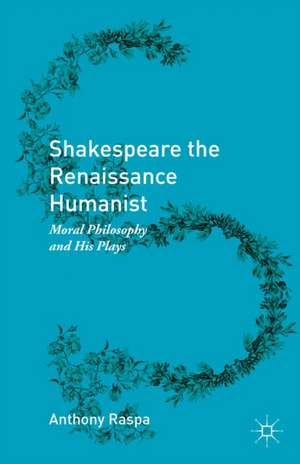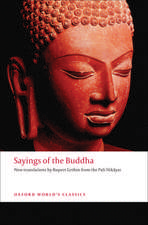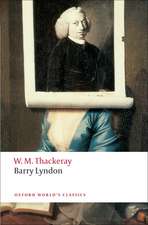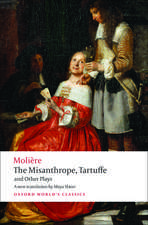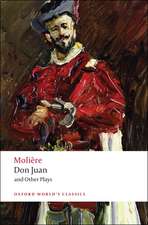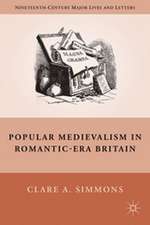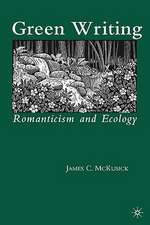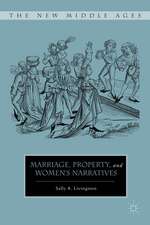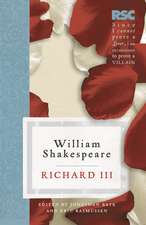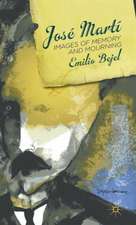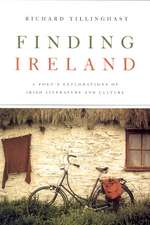Shakespeare the Renaissance Humanist: Moral Philosophy and His Plays
Autor Anthony Raspaen Limba Engleză Hardback – 6 ian 2016
Preț: 756.89 lei
Preț vechi: 890.46 lei
-15% Nou
Puncte Express: 1135
Preț estimativ în valută:
144.84€ • 154.87$ • 120.76£
144.84€ • 154.87$ • 120.76£
Carte tipărită la comandă
Livrare economică 18 aprilie-02 mai
Preluare comenzi: 021 569.72.76
Specificații
ISBN-13: 9781137581112
ISBN-10: 1137581115
Pagini: 195
Ilustrații: IX, 195 p.
Dimensiuni: 140 x 216 x 13 mm
Greutate: 3.65 kg
Ediția:1st ed. 2016
Editura: Palgrave Macmillan US
Colecția Palgrave Macmillan
Locul publicării:New York, United States
ISBN-10: 1137581115
Pagini: 195
Ilustrații: IX, 195 p.
Dimensiuni: 140 x 216 x 13 mm
Greutate: 3.65 kg
Ediția:1st ed. 2016
Editura: Palgrave Macmillan US
Colecția Palgrave Macmillan
Locul publicării:New York, United States
Cuprins
1. Shakespeare, the Critics, and Humanism
2. Metaphysics as the Way Things Are: King John and Hamlet
3. The Wisdom of King Lear
4. Macbeth's Imagination as Fatal Flaw
5. Beauty and Misfortune in Romeo and Juliet
6. Of Animals and Men: The Tempest
2. Metaphysics as the Way Things Are: King John and Hamlet
3. The Wisdom of King Lear
4. Macbeth's Imagination as Fatal Flaw
5. Beauty and Misfortune in Romeo and Juliet
6. Of Animals and Men: The Tempest
Recenzii
“Raspa (retired, Laval Univ., Canada) argues that contemporary Shakespeare criticism has moved too far away from the philosophical contexts of Shakespeare’s own time … . Raspa seeks to redress this by reading a variety of plays through the lens of Renaissance humanism, offering explanations of how Shakespeare’s contemporaries would have necessarily understood various moments in the plays. … Summing Up: Recommended. Graduate students, researchers, faculty.” (A. Castaldo, Choice, Vol. 54 (5), January, 2017)
Notă biografică
Anthony Raspa is a Retired Professor of English at Laval University, Canada.
Textul de pe ultima copertă
Shakespeare the Renaissance Humanist is a study of the moral philosophy that underlay the 'street' humanism in the mind of Shakespeare's spectator when he went to see Hamlet or King Lear at the Globe. The work examines the currents of thought at the basis of this humanism to show how it functioned as a sort of everyday philosophy in the spectator's life and in the lives of Shakespeare's characters. Ideas inherited from the Ancient pagans and the medieval period were commingled daily as a matter of fact. The faculty of the reason in each person was a source of spiritual experience and speculation that were lived easily at one and the same time. As we see in the person of Hamlet, there was no contradiction between spiritual thought and speculation about the outside world. Pagan attitudes to immortality in the metaphysics of this humanism conjoined without conflict with Christian beliefs about the ultimate ends of life, and these attitudes and beliefs are found argued out in Titus Andronicus. The ideal of wisdom based on the tenets of this metaphysics was much spoken about in moral philosophy. In Shakespeare's day the ideal was referred to repeatedly in terms of the dictum "Know Thyself" that was carved over the entrance to the temple of Apollo in Ancient times, and the actions of Lear and his courtier Gloucester are spoken of from the beginning of their tragedy to its end in terms of their apprenticeship in wisdom. Through the humanism that lay behind it, moral philosophy found its expression freely in all aspects of Shakespeare's theatre.
